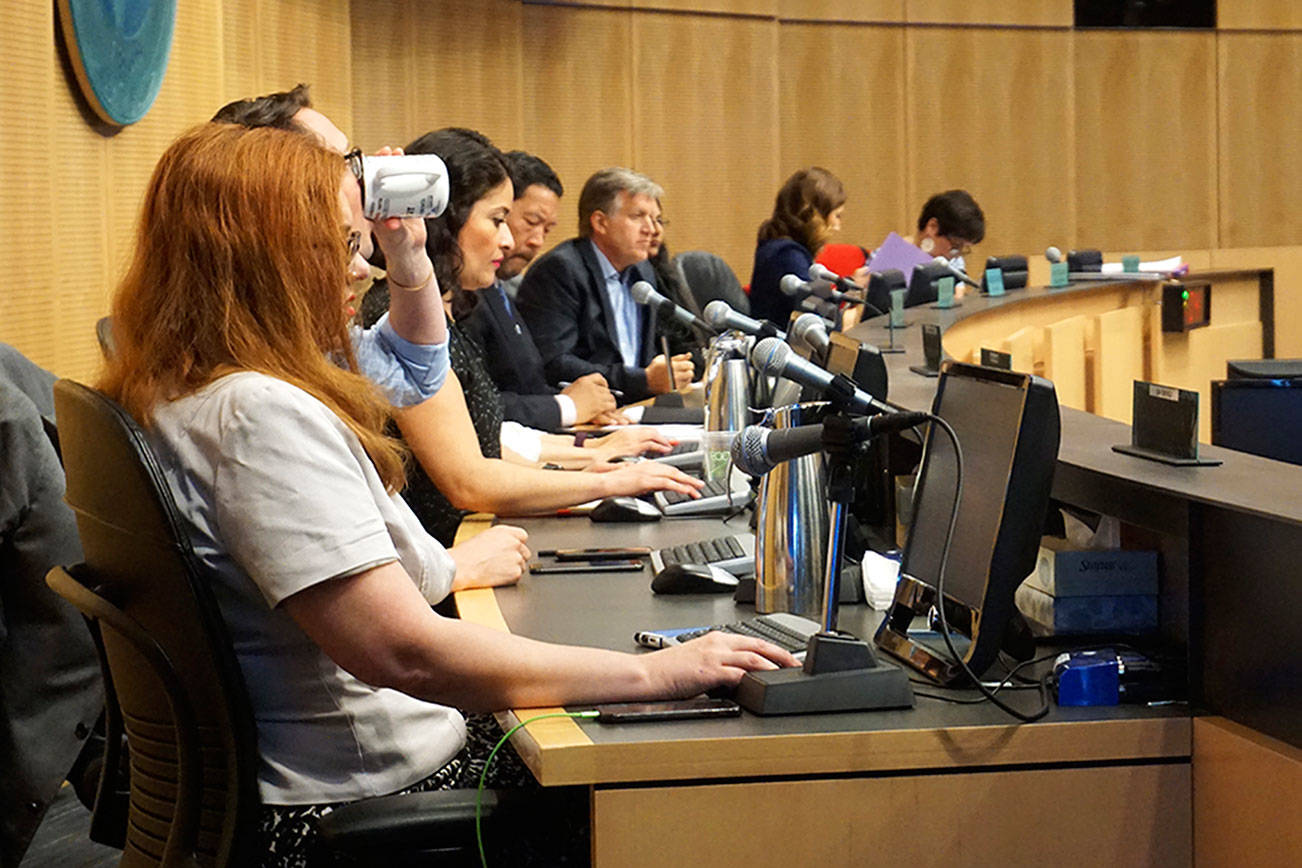From open-government advocates filing lawsuits against the city to grassroots organizations calling for the return of goods into the public domain, recent actions by Washington residents show the desire to have greater say in how Seattle is run.
For instance, a national campaign launched on June 20 called “We Make This City,” run by Partnership for Working Families, plans to address some of the most pressing issues in 10 cities throughout the country, including Seattle, by sharing research and solutions among affiliate organizations.
Along with Seattle’s Puget Sound Sage, organizations in San Diego, Boston, Oakland, Atlanta, Los Angeles, Denver, New York City, Pittsburgh, and San Jose will work together to provide greater access to public facilities and resources such as clean water and affordable homes.
The campaign seeks to shift power from businesses to residents by encouraging communities to take the lead and fighting for the “return of currently privatized public goods to the public domain,” according to the collective’s website. The lessons gained in fights across the different cities will help inform organizations in the campaign how best to address similar struggles in their region.
“People are waking up to the fact that running government ‘like a business’ and entrusting the well being of our communities to private corporations doesn’t create the cities that we need and deserve,” Partnership for Working Families Deputy Director Lauren Jacobs said in a press release. “With this day of action, we’re demanding that we—the people who live and work in our communities—shape the future of our cities.”
According to an In These Times interview, Jacobs cited Seattle’s employee head tax repeal as an example of how big businesses have leveraged its influence over cities.
The $275-per-employee head tax on businesses grossing at least $20 million was repealed by a 7-2 vote by the Seattle City Council less than a month after it passed. City Council members who voted for the repeal said that they did so because of waning public support, and a desire to find solutions that brought the city, businesses and advocacy organizations together to address the city’s housing crisis. People who opposed the repeal accused the City Council of capitulating to big businesses.
Additionally, the city is facing two lawsuits filed in mid-June for allegedly breaking the state’s Open Public Meetings Act by holding private discussions to repeal the head tax. One of the lawsuits filed on June 14 by Seattle-based attorney James Egan, represented by Lincoln Beauregard and Julie Kays, accused Mayor Jenny Durkan and eight of the nine city councilmembers of unlawfully debating the head tax behind closed doors.
Although the repeal was passed in a public forum, the lawsuit contends that Durkan, Bruce Harrell, Sally Bagshaw, Lorena Gonzalez, Lisa Herbold, Mike O’Brien, Teresa Mosqueda, Debora Juarez, and Rob Johnson had met in private to deliberate repealing the head tax. The councilmembers also violated the state’s Open Public Meetings Act by announcing a special meeting to repeal the ordinance in less than the 24-hour notice required for such meetings, the lawsuit states.
“To be clear, this lawsuit does not challenge the legitimacy of the ultimate vote, only the clandestine tallying and debate,” the lawsuit concludes.
On the same day, another lawsuit filed by Olympia-based open government activist Arthur West claimed that the city violated the Open Public Meetings Act when councilmembers discussed repealing the head tax prior to the public forum, the Seattle Times reports.
Mhellmann@seattleweekly.com








